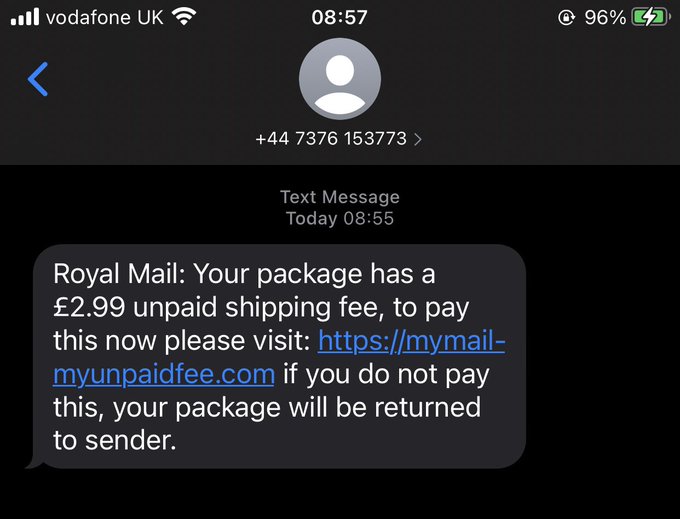The majority of “smishing” fraud attempts have come through the blitz of parcel delivery texts sent out during the Covid crisis.
Millions of mobile users have received the texts that claim a small payment is needed for a package delivery to be completed.
But the texts are a front for fraudsters attempting to steal personal banking details.
Cybersecurity firm Proofpoint told banks their prevalence was on the rise.
Proofpoint, which provided data for the banking trade body UK Finance, said that over a 90-day period to mid-July, some 53% of these smishing attempts were via delivery texts. This compared with 23% of messages claiming to be from banks or financial institutions.
During the most recent 30-day period, some 67% of these scams were delivery text messages.
Katy Worobec, managing director of economic crime at UK Finance, said: “Criminals are experts at impersonating a range of organisations and have capitalised on the pandemic, knowing that many of us will be ordering goods online and awaiting parcel deliveries at home. ”
For many a text, claiming to be from Royal Mail or a delivery company arrives out of the blue and claims a parcel is awaiting delivery, but a small payment is required.
The message then links to a website mocked up to look like an official site. The page requests personal and payment details, which scammers may use to steal someone’s identity, or use to target them with other scams.
